Cette section contient des conseils et des documents d’orientation de l’ONU concernant la mise en place et la gestion d’initiatives de médiation. Les praticiens y trouveront des conseils pratiques et différentes possibilités pour aborder certains des principaux défis et domaines thématiques de la médiation afin de maximiser les chances de succès.
Documents d’orientation de l’ONU
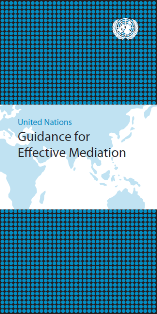
Le Secrétaire général a établi les Directives des Nations Unies pour une médiation efficace en réponse à une demande de l’Assemblée générale (A/RES/65/283). Ces Directives définissent un certain nombre d’éléments fondamentaux dont toute initiative de médiation doit tenir compte : préparation, consentement, impartialité, ouverture du processus à toutes les parties prenantes, appropriation nationale, droit international et cadres normatifs, cohérence, coordination et complémentarité des activités de médiation, et accords de paix de qualité.
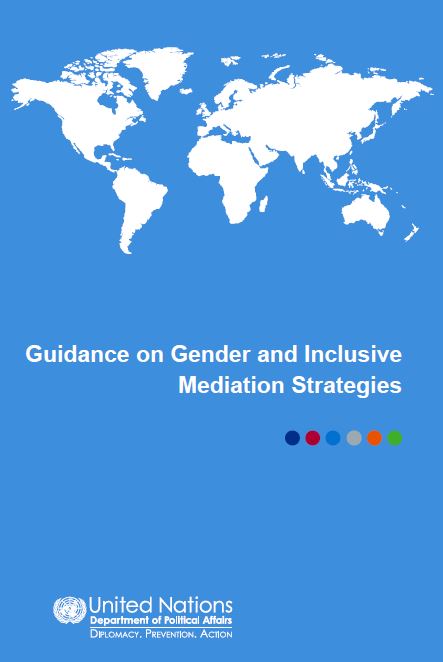
Ce document d’orientation du DPPA des Nations Unies vise à informer les médiateurs et leurs équipes, ainsi que les parties au conflit, sur les principes et les stratégies permettant d’inclure efficacement les femmes, ainsi qu’une perspective sexospécifique, dans les processus de médiation. Il aborde la préparation de la médiation, la conception du processus et les questions de fond, notamment les dispositions en matière de sécurité, la participation, les constitutions, le libellé et la mise en œuvre des accords de paix dans une optique d’égalité entre les femmes et les hommes.
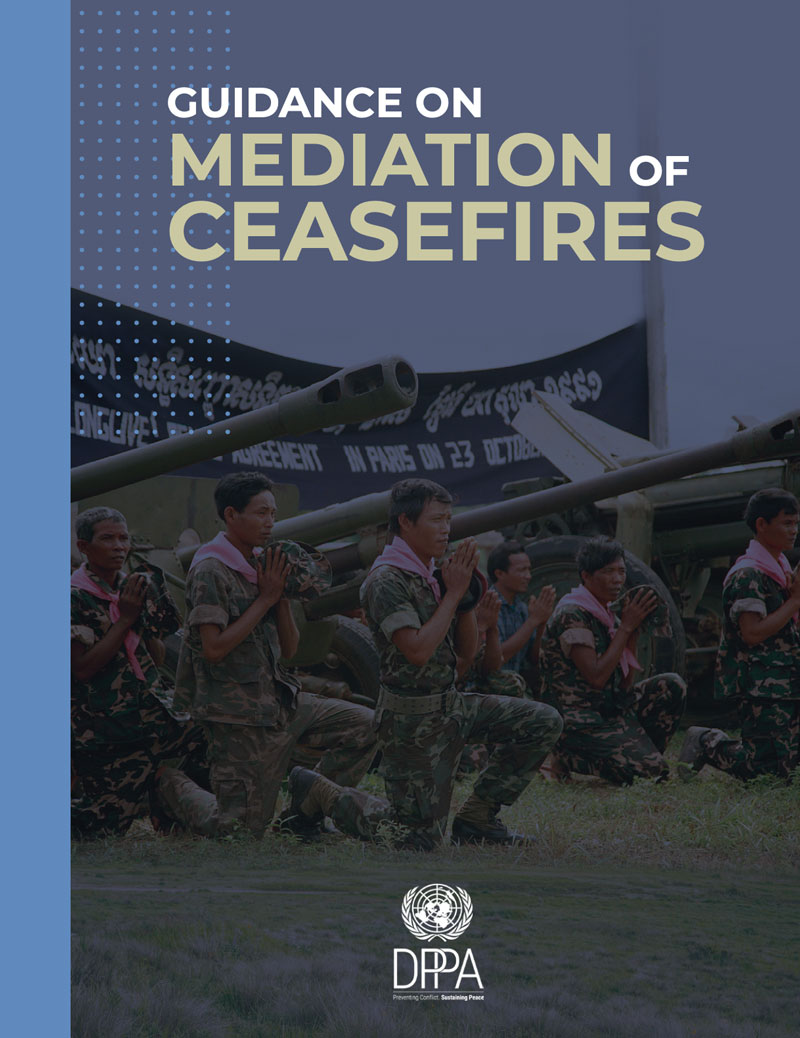
Ces directives sont conçues pour venir en aide aux hauts responsables et au personnel de l’ONU, aux médiateurs et aux facilitateurs au sein et en dehors de l’Organisation, ainsi qu’à leurs équipes, aux parties au conflit, aux représentants des États et des organisations régionales, aux organisations non gouvernementales nationales et internationales, aux groupes de femmes et à d’autres parties prenantes aux processus de paix.
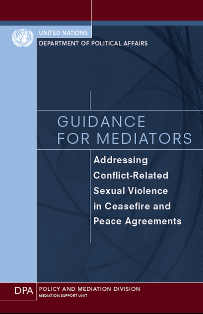
L’ONU attend de ses médiateurs qu’ils luttent contre les violences sexuelles liées aux conflits. Ce guide leur propose, ainsi qu’à leurs équipes, des principes et des stratégies permettant d’inclure cette source de préoccupation majeure, en matière de consolidation de la paix et de sécurité, dans les accords de cessez-le-feu et les accords de paix.
Notes de politique générale, notes de pratique et documents spéciaux
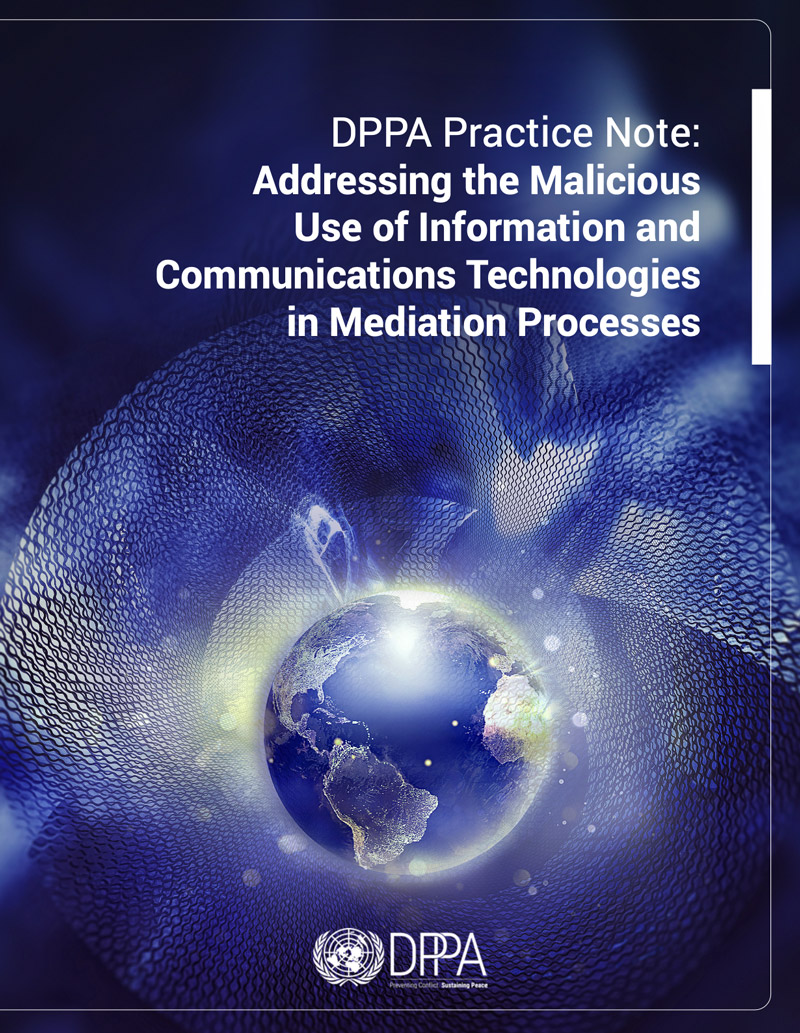
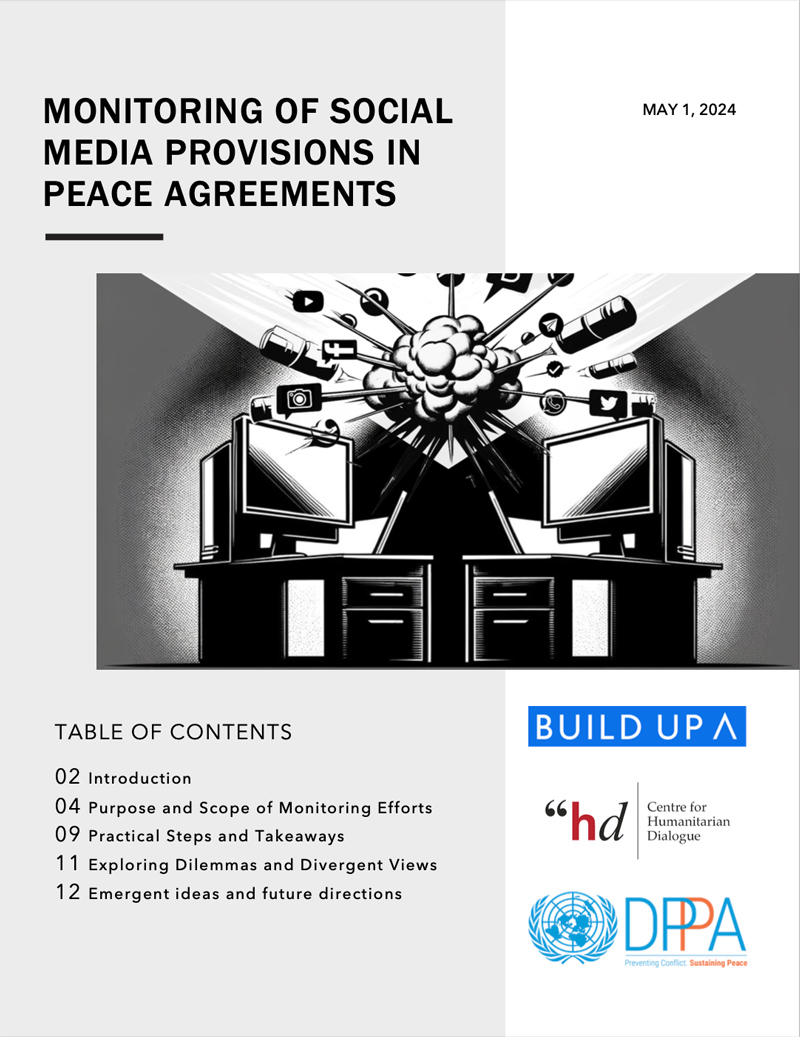
L’impact des médias sociaux sur la dynamique des conflits et le processus de médiation est un aspect crucial et en constante évolution de la médiation contemporaine. Les médiateurs commencent à aborder cet impact par le biais d’accords autonomes sur les médias sociaux, de codes de conduite préalables au processus ou de l’inclusion de clauses spécifiques sur les médias sociaux dans des accords de cessez-le-feu ou de paix plus vastes. Ce dossier vise à aborder le défi encore peu étudié de la manière de mettre en œuvre et de surveiller les dispositions relatives aux médias sociaux dans les accords de paix.
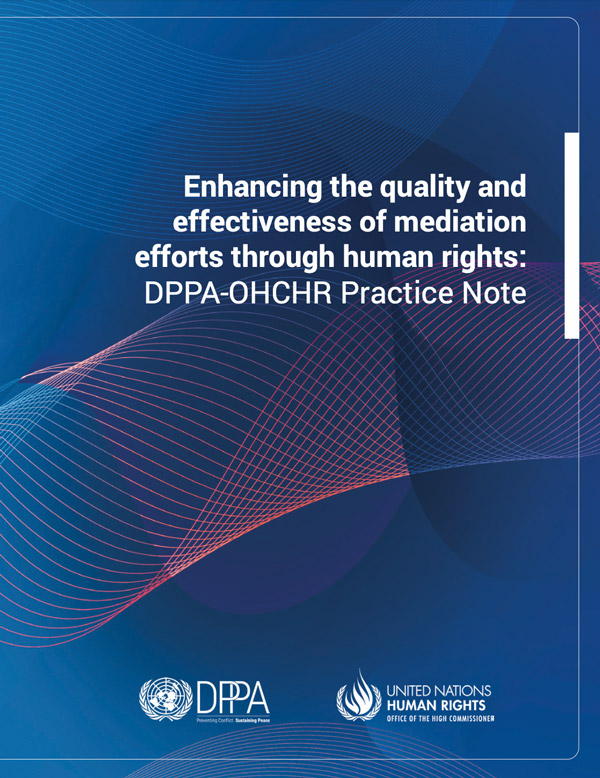
Cette note de pratique, fruit d’une collaboration entre le DPPA et le Haut-Commissariat aux droits de l’homme (HCDH), explore des stratégies pratiques et des exemples concrets pour aider les médiateurs et les praticiens des droits humains à intégrer les principes et les considérations relatifs aux droits humains dans leur travail en général et à chaque étape des efforts de médiation en particulier. Il y est démontré que les droits humains offrent des solutions pratiques à de nombreux défis que les médiateurs tentent de surpasser.
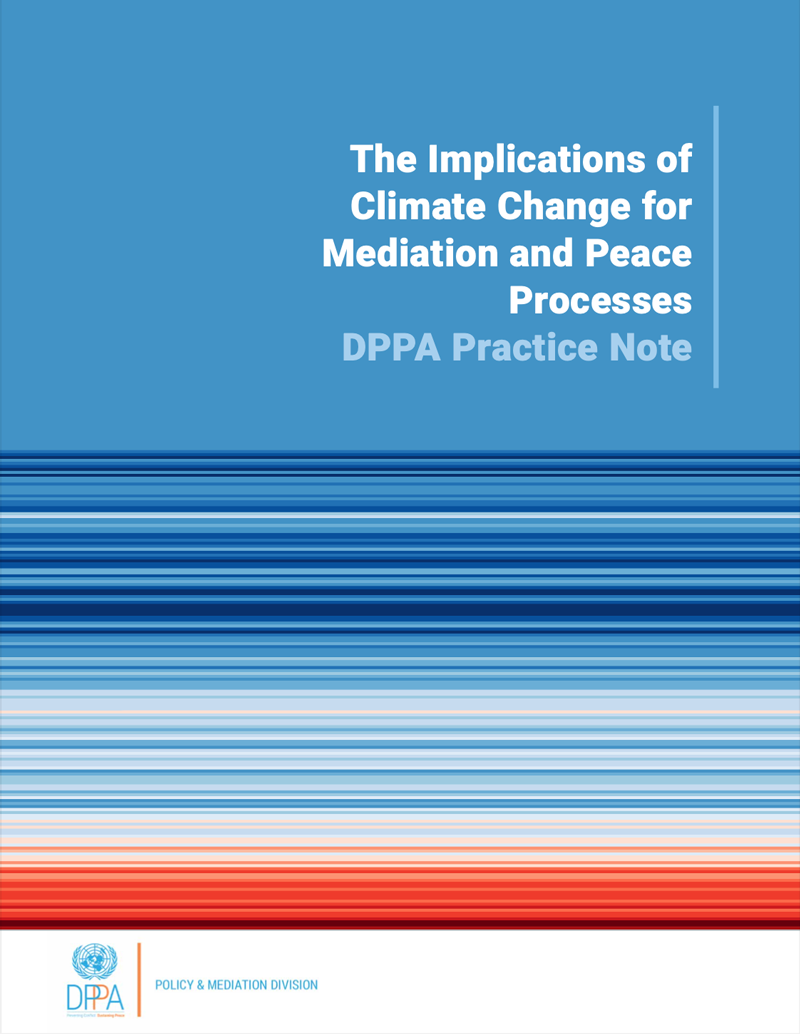
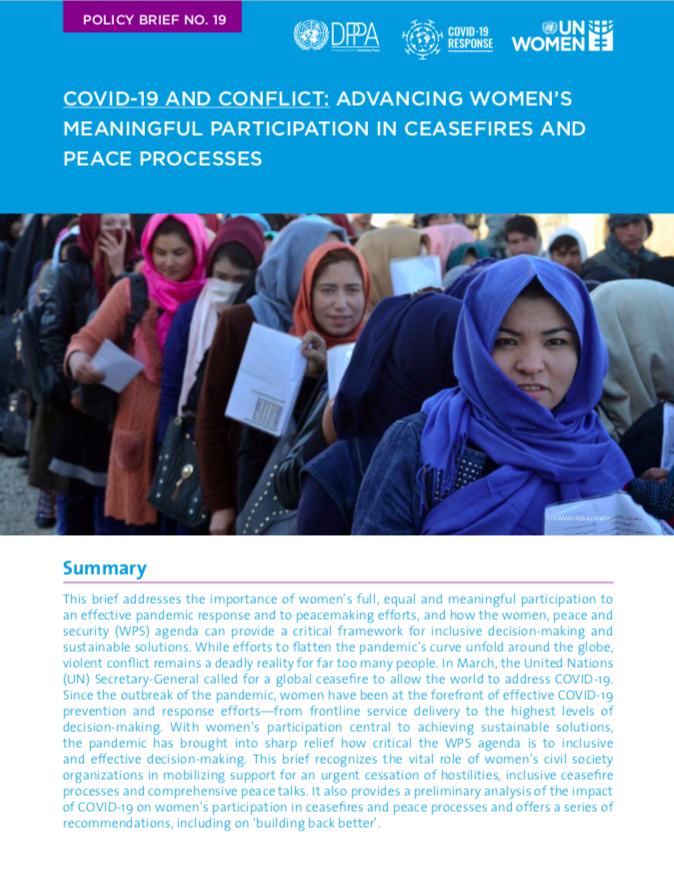
Ce document de politique générale témoigne de l’importance d’une participation pleine, égale et constructive des femmes à des interventions efficaces contre la pandémie et aux efforts de rétablissement de la paix. Il met aussi en lumière la manière dont le programme pour les femmes et la paix et la sécurité peut établir un cadre crucial favorisant des solutions durables et des prises de décision inclusives.
